
Blood Brothers is a musical with book, lyrics, and music by Willy Russell and produced by Bill Kenwright. The story is a contemporary nature versus nurture plot, revolving around fraternal twins Mickey and Eddie, who were separated at birth, one subsequently being raised in a wealthy family, the other in a poor family. The different environments take the twins to opposite ends of the social spectrum, one becoming a councillor, and the other unemployed and in prison. They both fall in love with the same girl, causing a rift in their friendship and leading to the tragic death of both brothers. Russell says that his work was based on a one-act play that he read as a child "about two babies switched at birth ... it became the seed for Blood Brothers."

Three Sisters is a play by the Russian author and playwright Anton Chekhov. It was written in 1900 and first performed in 1901 at the Moscow Art Theatre. The play is often included on the shortlist of Chekhov's outstanding plays, along with The Cherry Orchard, The Seagull and Uncle Vanya.
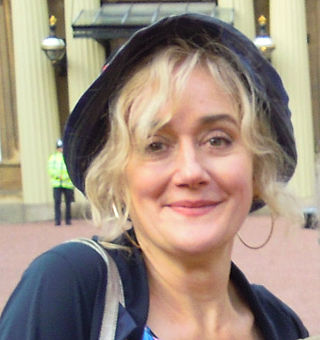
Sophie Thompson is a British actress. She has worked in film, television and theatre and she won the 1999 Olivier Award for Best Actress in a Musical for the London revival of Into the Woods. She has been nominated for the Olivier Award five other times for Wildest Dreams (1994), Company (1996), Clybourne Park (2011) Guys and Dolls (2016) and Present Laughter (2019).

The Magic Toyshop (1967) is a British novel by Angela Carter. It follows the development of the heroine, Melanie, as she becomes aware of herself, her environment, and her own sexuality.

Eric Pollard is a fictional character from the British soap opera Emmerdale, played by Chris Chittell. He made his first appearance in the soap on 30 September 1986. Having appeared continuously since, he is currently the longest-serving actor and the longest-serving character in the history of the soap. The character originally served as the show's villain, but this has been noticeably toned down in recent years, particularly since Eric's marriage to Val Lambert and the introduction of his long-lost son, David Metcalfe.
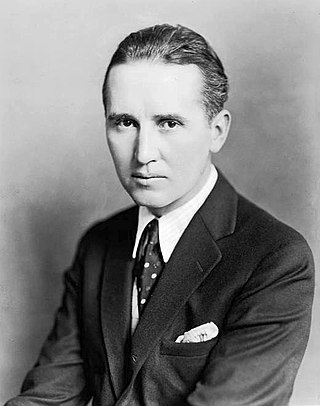
George Edward Kelly was an American playwright, screenwriter, director, and actor. He began his career in vaudeville as an actor and sketch writer. He became best known for his satiric comedies, including The Torch-Bearers (1922) and The Show-Off (1924). He won the Pulitzer Prize for Craig's Wife (1925).
Ivanov is a four-act drama by the Russian playwright Anton Chekhov.
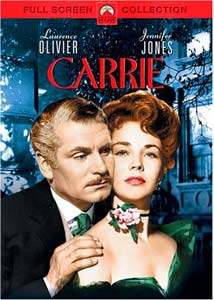
Carrie is a 1952 American drama film based on the novel Sister Carrie by Theodore Dreiser. Directed by William Wyler, the film stars Jennifer Jones in the title role and Laurence Olivier as Hurstwood. Eddie Albert played Charles Drouet. Carrie received two Academy Award nominations: Costume Design, and Best Art Direction.
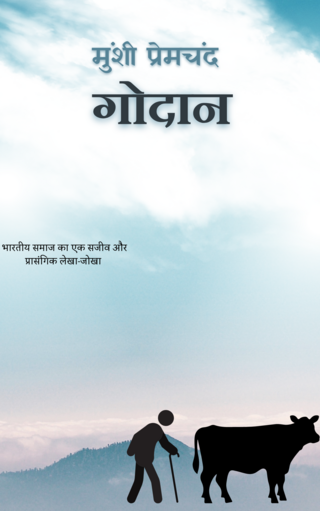
Godaan is a famous Hindi novel by Munshi Premchand. It was first published in 1936 and is considered one of the greatest Hindi novels of modern Indian literature. Themed around the socio-economic deprivation as well as the exploitation of the village poor, the novel was the last complete novel of Premchand. It follows the story of an old poor farmer, stuck in a debt trap, who wants to purchase a cow, but is unable to do so because of lack of finances. It has been translated into English in 1957 by Jai Ratan and Purushottama Lal as The Gift of a Cow. A 1968 translation by Gordon C. Roadarmel is now considered "a classic in itself".

David Metcalfe is a fictional character from the British ITV soap opera Emmerdale, played by Matthew Wolfenden. It was reported in August 2023 that he was set to leave the soap after 17 years, due to a lack of "gritty" storylines. David's final scenes were broadcast on 30 November 2023.

The Ware Case is a 1938 British drama film directed by Robert Stevenson and starring Clive Brook, Jane Baxter and Barry K. Barnes. It is an adaptation of the play The Ware Case (1915) by George Pleydell Bancroft, which had previously been made into two silent films, in 1917 and 1928. It had been a celebrated stage vehicle for Sir Gerald Du Maurier. The film was made at Ealing Studios with stately home exteriors shot in the grounds of Pinewood. Oscar Friedrich Werndorff worked as set designer.
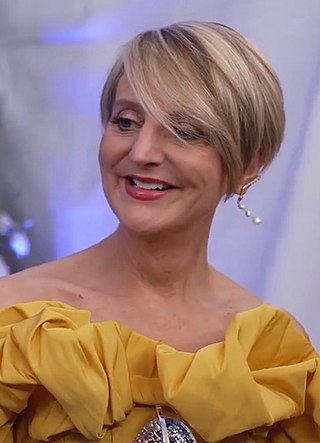
Marianne Phoebe Elliott is a British theatre director and producer who works on the West End and Broadway. She has received numerous accolades including two Laurence Olivier Awards and four Tony Awards.
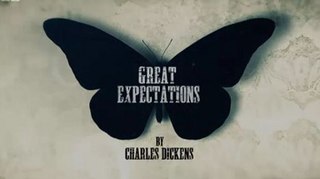
Great Expectations is a three-part BBC television drama adaptation by Sarah Phelps of the Charles Dickens’s 1861 novel of the same name, starring Ray Winstone as Magwitch, Gillian Anderson as Miss Havisham, Douglas Booth as Pip, Vanessa Kirby as Estella and David Suchet as Jaggers. The adaptation was first broadcast on British television over the Christmas period in 2011.
The Dreaming is a 2001 musical written by Howard Goodall and Charles Hart, based on William Shakespeare's A Midsummer Night's Dream but reset in the Edwardian period.

Wonder.land is a musical with music by Damon Albarn and lyrics and book by Moira Buffini. Inspired by Lewis Carroll's novels Alice's Adventures in Wonderland (1865) and Through the Looking-Glass (1871), it had its world premiere at the Palace Theatre in Manchester in July 2015 as part of the Manchester International Festival. The musical moved to London's Royal National Theatre in November 2015 before opening at the Théâtre du Châtelet in Paris in 2016.
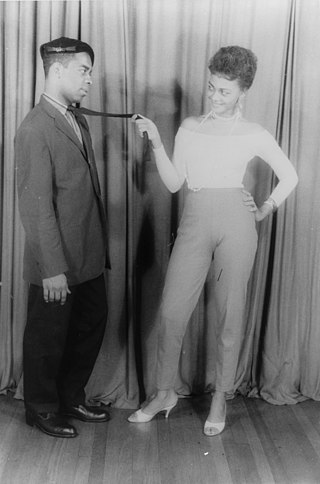
Simply Heavenly is a musical comedy with book and lyrics by Langston Hughes and music by David Martin, based on Hughes' novel Simple Takes A Wife and other Simple stories.

Zubin Khan is a fictional character from the BBC medical drama Holby City, played by actor Art Malik. He first appeared in the series five episode "Private Lives", broadcast on 17 June 2003. Zubin arrives at Holby City hospital as a consultant anaesthetist. The BBC's drama controller Mal Young approached Malik with the offer of joining the show. He let Malik have control over Zubin's characterisation and as a result Zubin became a Muslim man with an "honourable" persona. The actor also accepted the role because he believed that Holby City positively featured many multiracial characters. To prepare for the role Malik consulted with his real-life family of surgeons and took work experience in a hospital.















